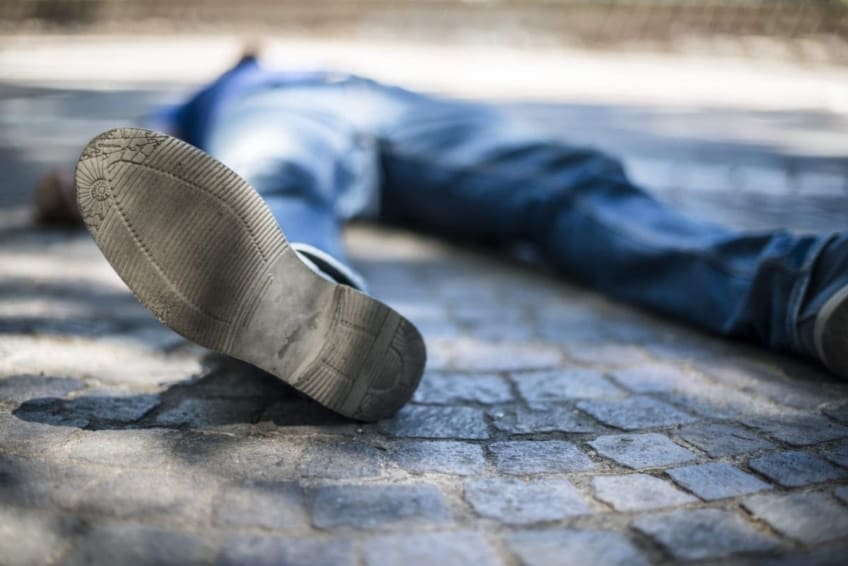
What is fainting?
Fainting happens when your brain does not get enough oxygen. You lose consciousness, or “pass out,” for a brief time (usually just a few seconds or minutes).
Symptoms of fainting
The primary symptom of fainting is losing consciousness. But there are other symptoms that may occur before you faint. These include feeling:
- Lightheaded
- Dizzy
- Weak
- Nauseated
- Sweaty
You also may have a headache or ringing in your ears.
What causes fainting?
Fainting, which is also called syncope, can be caused by many different things. Sometimes a specific cause for fainting cannot be found.
A sudden drop in your blood pressure can cause you to faint. Sometimes your heart rate and blood vessels can’t react fast enough when your body’s need for oxygen changes. This is very common among older people. It is also common in people who have certain health conditions, such as diabetes. Fainting can happen when:
- You stand up too fast
- You work or play hard (especially if it’s very hot)
- You begin to breathe too fast (called hyperventilating)
- You get very upset (being upset can affect the nerves that control your blood pressure)
- You’re taking medicine for high blood pressure
Coughing, urinating, and stretching can also get in the way of the flow of oxygen to the brain and may cause you to faint. If you faint once during one of these activities, it’s probably not something to worry about. But if it happens more than once, tell your doctor about it.
If you faint when you turn your head to the side, the bones in your neck may be pinching one of the blood vessels that lead to your brain. If this happens to you, be sure to tell your doctor about it.
A drop in your blood sugar may also cause you to faint. This can happen if you have diabetes. It may also happen if you don’t eat for a long time.
Some prescription medicines can cause fainting. Be sure to talk to your doctor if you think your fainting may be related to a medicine you’re taking.
Alcohol, cocaine, and marijuana can also cause fainting.
More serious causes of fainting include seizures and problems with the heart or with the blood vessels leading to the brain.
How is fainting diagnosed?
Your doctor will probably ask you about what was happening or what you were doing when you fainted. They may ask you for details about how you felt right before and right after you fainted. Your doctor will probably also want to examine you and may perform some tests to find out why you fainted.
Can fainting be prevented or avoided?
People who have certain medical conditions are more likely to faint. These conditions include:
- Heart problems (irregular heartbeat or blockages in or near the heart that prevent the blood from getting to the brain)
- Diabetes
- Anxiety or panic disorders
- Dehydration
- Low blood sugar
What should I do if I think I’m going to faint?
If you feel like you’re going to faint, lie down. If you can’t lie down, sit and bend forward with your head between your knees. This helps get the blood flowing to your brain. Wait until you feel better before trying to stand up. When you stand up, do so slowly.
Fainting treatment
You probably don’t need to go to your doctor if you have only fainted one time and you are otherwise in good health. Fainting is common and usually not serious. However, if you have serious health problems or are on multiple medications, you probably should see your doctor. This is especially important if you have heart-related problems, high blood pressure, or diabetes. See your doctor if you faint and also have any of these symptoms or conditions:
- Irregular heartbeat
- Chest pain
- Pregnancy
- Shortness of breath
- Sudden onset (no warning signs)
- Blurred vision
- Confusion
- Trouble talking
- Taking longer than a few seconds to regain consciousness
- Fainting when you turn your head to the side
- Fainting more than once in a month
Living with fainting
In most cases, fainting can be treated and controlled. Often, diagnosing what is causing fainting is the most difficult part. If your fainting is not under control, you should talk to your doctor about whether it is safe for you to drive.
Questions to ask your doctor
- What is the most likely cause of my fainting?
- Is there something I can do to stop my fainting spells?
- Is there a medicine I can take that will help prevent fainting?
- Are there any steps I can take at home that will help me stop fainting?
- If I faint once, should I call the doctor immediately after I wake up?
- Is there a diet I should follow to help deal with my fainting?
- Are there any websites you recommend that I access? Do you have any educational materials I could read about fainting?
![]()
Copyright © American Academy of Family Physicians
This information provides a general overview and may not apply to everyone. Talk to your family doctor to find out if this information applies to you and to get more information on this subject.









